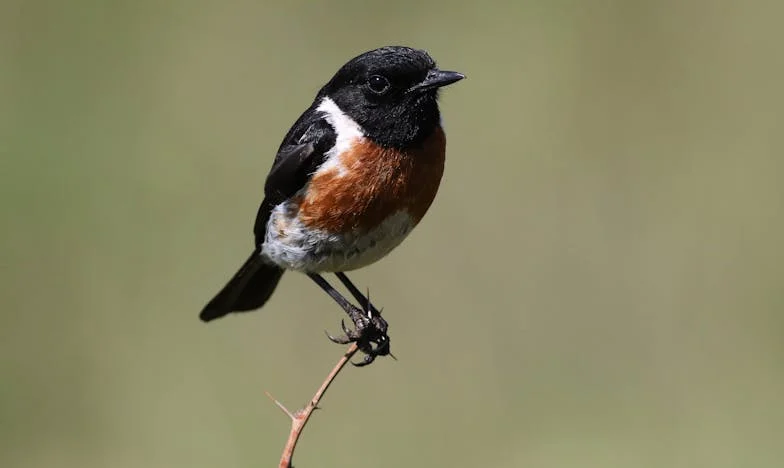One Hundred Miles From Home: A Night That Changed Everything
“Why did you stop? You know you shouldn’t stop for anyone out here—especially not at night,” my mom’s frantic voice echoed in my head the moment I saw the red Mustang on the shoulder, hood up, hazard lights blinking like a warning. I gripped the steering wheel tighter, swallowing the knot in my throat. There was a young man waving his arms, eyes wide in the wash of my headlights, and I was so close—only a hundred miles left, the sky barely lightening, the world still half-asleep.
But I remembered what it felt like to be stranded. Two years ago, in the dead of winter, I’d spun out on black ice, waiting hours for anyone to stop. No one did. Maybe that’s why, despite the voice in my head and the stories on the news, I eased my foot off the gas and pulled over, gravel crunching under my tires.
I left the engine running. My phone was in my pocket, thumb ready to dial 911. I cracked the window. “Hey, you okay?”
He jogged over, shivering in a faded OSU sweatshirt. Early twenties, hair too long, face haunted. “Thank God, I thought no one would ever stop. My car just died. I’ve been here almost an hour.” He ran a hand through his hair. “I’m supposed to get to my sister’s wedding in Columbus. Look, I don’t have anyone else to call. Can you help me?”
My mind raced. I thought of my mom, my own sister, the way my dad would shake his head at my ‘bleeding heart.’ But something about the kid—his voice, the way he kept glancing at the empty road behind us—made me want to help. I killed the engine, stepped out, heart pounding. The air was sharp. “Let’s see what’s going on.”
He introduced himself as Tyler. He talked nervously as I peeked under the hood. Dead battery. I had jumper cables in the trunk. Tyler’s hands shook as he tried to connect the clamps. “Sorry,” he muttered, “I’m not usually like this. Just… bad night.”
We worked in silence, dawn crawling over the horizon. I kept glancing at the open fields, half-expecting another car to appear. Finally, the Mustang coughed to life. Tyler’s face broke into a relieved grin. “You’re a lifesaver.”
I shrugged. “Just paying it forward, I guess.”
He hesitated, then blurted out, “Can I follow you to the next exit? I’m low on gas, and my phone’s dead.”
I hesitated. This was the moment—the fork in the road. I could say no, get back in my car, and be home by breakfast. Or I could trust him. Take the risk. I nodded. “Yeah. There’s a truck stop about ten miles up.”
We drove in convoy, Tyler’s Mustang trailing my battered Corolla. My hands trembled on the wheel. What was I doing? I thought of my sister, waiting for me at home, the way she always said I was too trusting, too quick to see the good in people. Was I naïve? Or just lonely?
At the truck stop, Tyler filled up. He came over, wiping his hands on his jeans. “Listen,” he said, voice low, “I wasn’t totally honest. I’m not just going to a wedding. I’m running away from something. From someone.”
I stared at him. “What do you mean?”
He looked away. “My stepdad—he’s… he’s not a good person. I couldn’t stay. I had nowhere else to go. I just wanted to get to my sister. She’s the only family I have left.”
I felt anger rising—at his stepdad, at the world, at my own family for its secrets and silences. “You did the right thing getting out,” I said quietly. “You don’t owe anyone your pain.”
We talked for a long time, sipping bad coffee at a booth while truckers came and went. Tyler told me about his childhood—small-town Ohio, football games, hiding bruises. I told him about my dad’s drinking, my mom’s denial, the night I left for college and never looked back.
We realized we weren’t so different, both running from ghosts, both searching for something we couldn’t name. Family, maybe. Safety. A place to belong.
It was full daylight when we got up to leave. Tyler gave me a hug, awkward but heartfelt. “Thank you,” he whispered. “You didn’t have to stop.”
I watched him drive away, heading toward a future that scared him, but at least was his. I sat in my car, staring at the empty parking lot, wondering what my own homecoming would look like. Would my family see me? Would they understand the person I’d become?
Later, as I pulled into my parents’ driveway, my mom was waiting on the porch. She looked older than I remembered, worry lines etched deep. “You’re late,” she called, arms folded, but there was relief in her eyes.
I hugged her tight. For the first time in years, I let myself feel how much I’d missed her. I realized kindness to a stranger hadn’t just saved Tyler—it had brought me back to myself, too.
I keep thinking about that night. How many of us are stranded on some empty road, waiting for someone to stop? How many times do we look away, afraid to get involved—afraid to really see each other? Would you have stopped? Or would you have kept driving, telling yourself it was safer that way?
